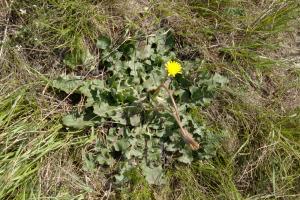Genus Taraxacum (Asteraceae), having ∼60 sections and 2,800 species, is known for its complicated evolutionary relationships and taxonomy due to processes like frequent hybridization, polyploidization, asexual reproduction, clonality and low structural morphological variability. Various taxonomical concepts and approaches are reviewed, evaluated and discussed from point of view of their ability to deal with such a complicated genera as is Taraxacum. Various processes responsible for the complicated situation within Taraxacum are discussed and reviewed. Section Dioszegia, comprising T.

